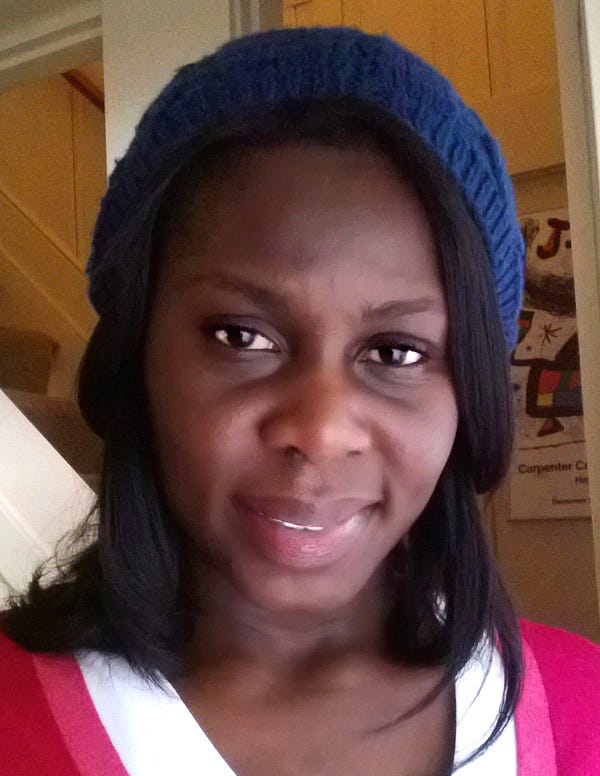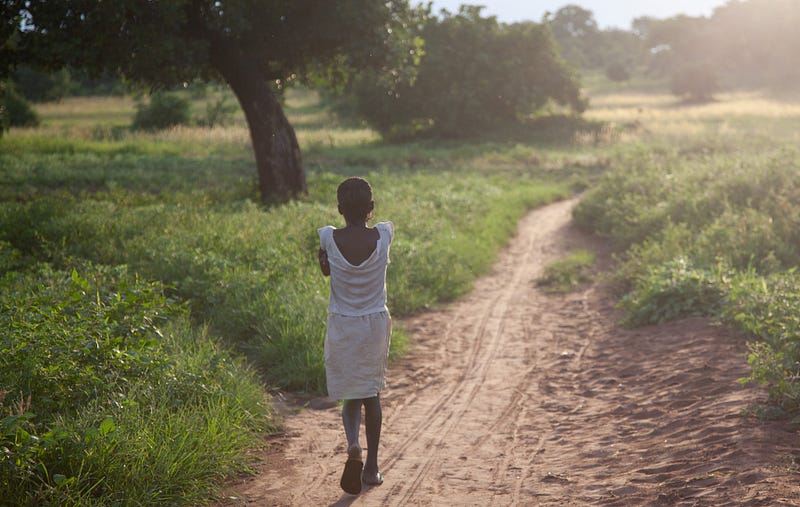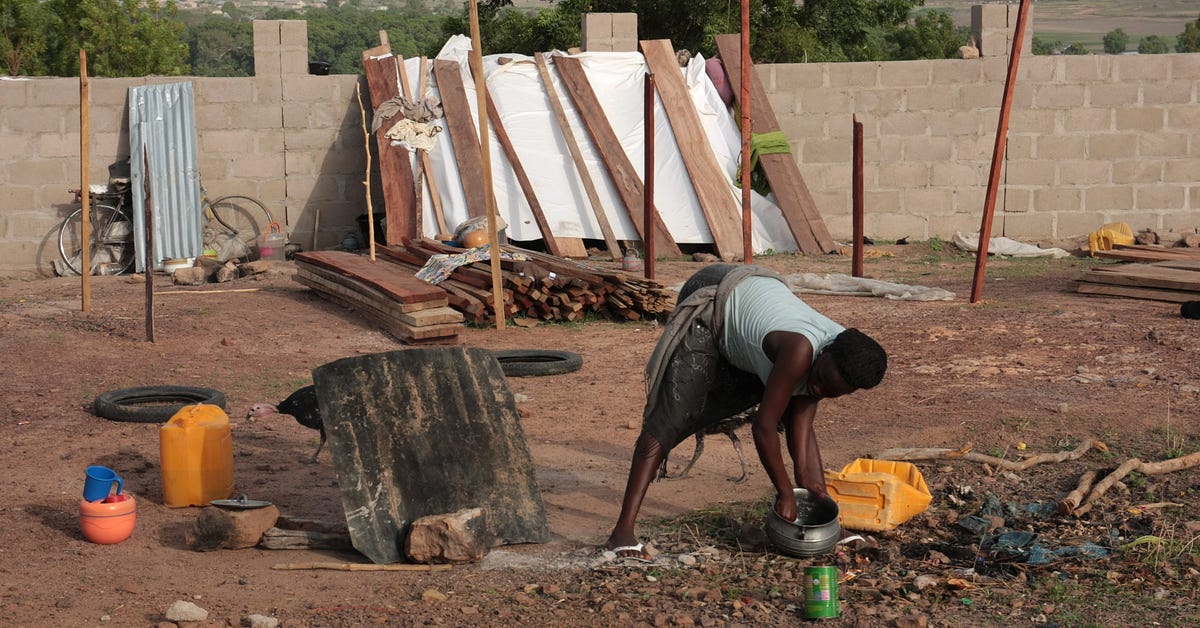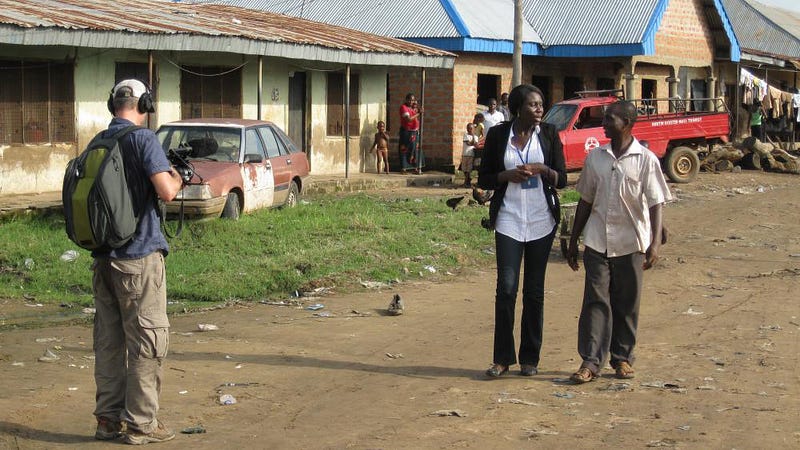BY TELLING STORIES I CAN CREATE CHANGE

Journalist
Ameto Akpe was working on a story about a Nigerian businessman who had
partnered with a group of Americans to build six oil refineries in
Nigeria.
Akpe investigated the Nigerian company’s office and found out it was a bogus operation. The American company was also not listed anywhere and calls to their “parent company” in New York were never returned.
Akpe investigated the Nigerian company’s office and found out it was a bogus operation. The American company was also not listed anywhere and calls to their “parent company” in New York were never returned.
“I
tracked down one of the executives of the company; he was a managing
director. At first he tried to dodge me but finally he invited me to
lunch,” she said. “I mentioned it to my boss — I’m going here in case I
disappear. His intention was to buy me a fancy lunch.”
During
the lunch, the executive avoided answering Akpe’s questions. “Then he
said, ‘Is the lunch not good?’ And I said, ‘It’s fantastic! How much is
it, you know? We have to go Dutch on this.”’ Akpe would not let herself
be bribed as is common with a number of Nigerian journalists.
Despite her efforts, a minister in the government got Akpe’s story killed.
“I
had poured my life-blood into that story. I contacted colleagues in
three other major newspapers and gave them the timeline, words,
locations…this is what I found. Let my sweat-blood not be wasted!” In
the end, only one of the outlets published her story. “That’s why I am
very passionate about how we change Nigerian journalism,” Akpe said.
“There are so many great stories in Nigeria to be told and they are not
being told.”
Akpe grew up in fairly comfortable circumstances, mostly living on military bases.
Before
she became a journalist, she earned a degree in geography and performed
the year of service required of every university graduate in Nigeria.
She was sent to teach high school geography in a remote village. Akpe
was struck by the poverty and lack of formal education for girls and the
hopelessness of their circumstances.

“Seeing
their day to day struggles I was totally blown away. Really shocked. I
knew a lot of people would never hear their stories and a lot of them
would never leave that village. Having been a story teller all my
life — I come from a family of story tellers — I wanted to tell their
stories. I believe that by telling stories, I can create change.”
After
her year of teaching, at the age of 25, Akpe started working at a
television station, despite her family’s concerns. When she was 27, she
joined the newspaper, Business Day.
Political
pressure and bribery is rampant in Nigerian journalism and Akpe was
disappointed by the lack of professionalism and passion she saw in
fellow journalists.
“While
I do not suggest that journalists become activists, I believe
journalists must enable the process of change. I am not a journalist
content to just report the facts and walk away. Maybe that makes me a
bad journalist. I don’t think so,” said Akpe in an article she wrote for Nieman Reports.
In
2013, Akpe won a Persephone Miel Fellowship that gave her the
opportunity to report from Northern Nigeria. There she investigated the impact of US “soft power” and the Nigerian government’s strategy against Boko Haram.
The experience was not easy. “It was in a very dangerous place and I
was scared,” she said. Not only was she a female reporter, from the
south, but she was traveling in a region that had so many terror
attacks, one of the roads was nicknamed “Iraqi Road.”

Nigeria
is one of the largest oil and gas producers in the world, but there are
still many power outages. In one story, Akpe caught the head of the
Nigerian National Petroleum Corporation and the new Power Minister
contradicting each other. The story caused a huge reaction.
“When
I get a phone call from a government official insulting me or
threatening me I feel accomplished. My life suddenly has a lot more
meaning. So I got a lot of reaction on that story. And it made me feel
really good.”
Akpe
is currently pursuing a Master’s Degree at Aarhus University in
Denmark. She is moving her focus from producing stories to trying to
change the practice of journalism.
“Journalism, like democracy, should evolve and we have been stagnant for too long,” she says.

Akpe
believes that one of the biggest problems with journalism in Nigeria is
the way in which journalists silence themselves. Too many journalists
are being seduced into silence by bribery and corruption. “Journalists
have become cooperative with those who want to silence us. And they
don’t silence us with bullets or threats of prison,” she said. “Money is
the big silencer.”
Journalism
is a practice of passion for Akpe. This is what makes her both fearless
and committed to growth and protecting freedom of expression.
“I
fear the loss of our identity as journalists, as watchdogs and major
players in enabling social change. Journalists are major players in
helping build, shape and guide society.”
“Yes,
I have sacrificed financial security, living paycheck to paycheck. But I
love what I do. I want to find ways to keep doing it, make it relevant
and interesting and rewarding. It’s about empowering the people and
hopefully awakening the spirit of journalism in Nigeria.”


Comments
Post a Comment